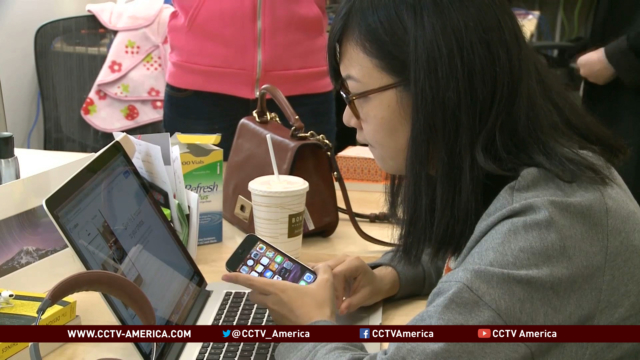Tech companies like Google, Facebook and Twitter recently reported that men hold over 80 percent of the jobs in their companies. Now, a big push in Silicon Valley to change that — companies are trying harder to recruit and hire women. But what’s not being discussed is how women fare once they get into those companies. CCTV America’s Mark Niu reported this story from California.

Born in North China’s Shanxi province, Li Yi is a Silicon Valley startup founder. Her company, Orbeus, just released the app Photo Time, which can automatically sort photos by faces, places and numerous other categories. Li has also worked at big tech companies in the past, like IBM, and certainly seen how men dominate the technology space.
“I went to a lot of conferences, stand on the stage for different pitches. It always happens that I was the only female presenter that day. Yeah, I do feel the number difference,” she said. But former Cisco Executive Buck Gee discovered that once women get into tech companies, white women climb the corporate ladder at high rates, while minority women appear to hit a glass ceiling.
“Nothing has been done about it. Even though people see it, they are not aware of the problem,” he said. Gee went through U.S. Equal Employment Opportunity documents from six Silicon Valley companies including Google and Yahoo. He discovered white women make up 11.7 percent of the professionals while holding more than 15 percent of total executive positions.
On the other hand, Asian women make up 11.3 percent of professionals, but only 4.2 percent of executives. Hispanic and black women fared even worse.
“A lot of Asian middle managers have not embraced what it takes to be an executive at the corporate companies. They believe working hard is enough to get you to the top, and near the top being an executive relies less on individual ability as more on the relationships,” Gee said.
Gee actually teaches executive education classes with a goal of developing Asian American Executives in large San Francisco Bay Area corporations. He says the different cultural upbringings of minorities sometimes works against them.
“There’s deference to authority, whereas that may work in Asia, in China where the managing style is really top-down, do as you are told. In Western-style companies, what you are looking for is initiative from below, people to disagree with you,” he said.
“I think it’s like two weeks ago, a Chinese media supported tech conference, and it’s very surprising that day with over half female leaders compared to the male. So I think it’s changing, just taking time,” Li said. She proudly points out that her 10-person startup has two other female members with strong technical backgrounds who serve as creative director and product manager. She believes her female and male team members complement each other and hopes more tech companies will start to realize that, too.
Sam Museus talked about stereotypes limit rise up corporate ladder
Given the fact that Asian-Americans are highly educated and do relatively well, why is it so hard to climb the corporate ladder. For more on this, CCTV America talked with Sam Museus. He’s an associate professor from University of Denver, an expert on and advocate for minorities in the United States.

 CGTN America
CGTN America

